Not every cultural revolution arrives with a bang—some of the most profound changes come through gentle persistence, thoughtful innovation, and the quiet determination of individuals who never sought the spotlight. While the headlines celebrated the loudest voices and most dramatic personalities, these soft-spoken influencers were busy transforming entertainment, technology, literature, and social norms through their understated brilliance. Their impact wasn’t always immediately apparent, but as time passed, the cultural landscape shifted permanently thanks to their behind-the-scenes contributions.
1. Fred Rogers
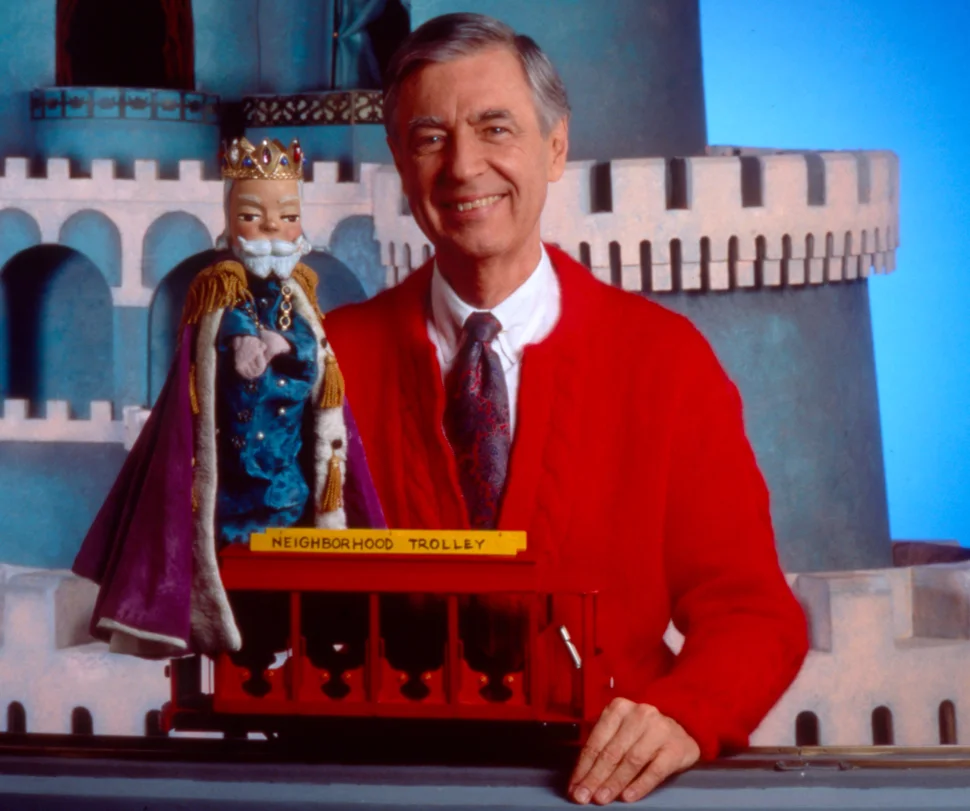
The cardigan-wearing host of “Mister Rogers’ Neighborhood” spoke so softly that children had to lean in close to their television sets, creating an intimate connection that lasted from 1968 to 2001. Fred Rogers never raised his voice, never relied on flashy animation or frenetic pacing, yet he revolutionized children’s television by addressing complex topics like death, divorce, and racial tensions with gentle honesty. His 1969 congressional testimony defending public television funding—delivered in the same measured tones he used with children—was so powerful it moved a skeptical Senator John Pastore to declare, “I think it’s wonderful. I think it’s wonderful.” Biography credits Fred Rogers with being the driving force behind changing children’s television forever.
Behind that quiet demeanor was a fierce advocate who understood that treating children with profound respect wasn’t just nice—it was necessary. Rogers, an ordained Presbyterian minister who never preached on his show, subtly embedded deep emotional and spiritual wisdom into seemingly simple songs and conversations. His revolutionary message that each child was special “just the way you are” stood in stark contrast to most children’s entertainment that focused on transformation fantasies, creating a counterbalance to commercial television that continues to influence programmers and child development experts decades after his final episode aired.
2. Rosa Parks
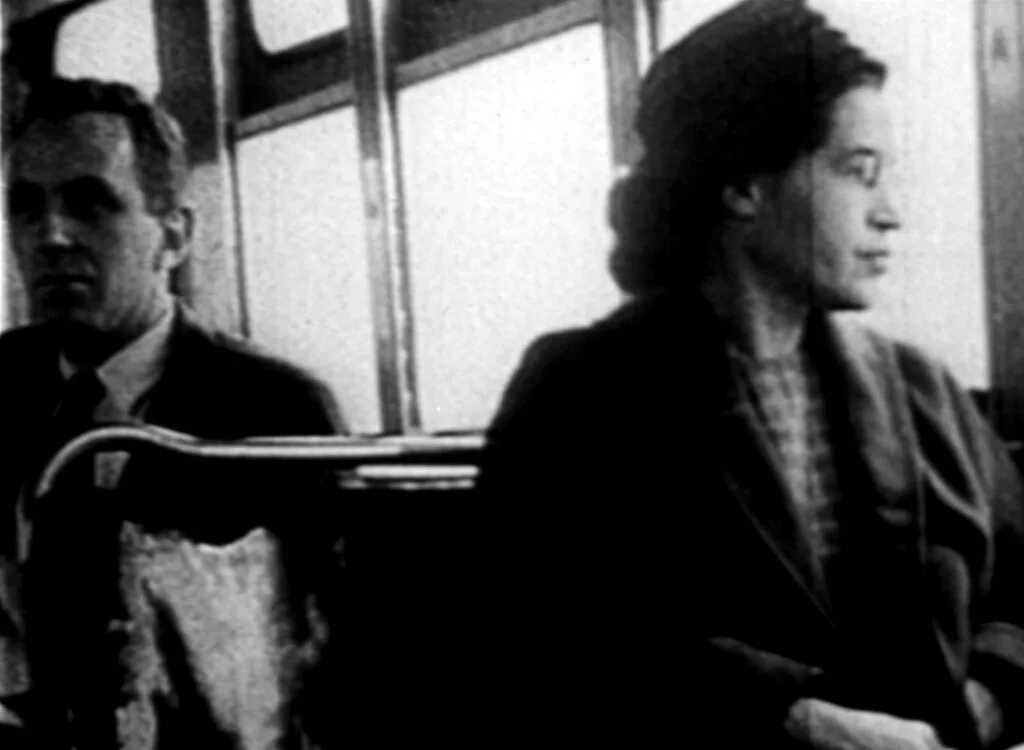
History often portrays her as simply tired after a long workday, but Rosa Parks made her culture-changing decision to remain seated on that Montgomery bus in 1955 with full awareness of its potential consequences. Her quiet refusal—delivered without shouting or dramatic speeches—ignited the Montgomery Bus Boycott and helped launch the American Civil Rights Movement into national consciousness. Parks, a trained civil rights activist who served as secretary of her local NAACP chapter, embodied a powerful truth: sometimes the most revolutionary act is a calm, dignified “no.” In the timeline of revolutionary changes in America, CNN places Rosa Parks as one of the earliest in the civil rights movement for her simple but powerful defiance.
The public image of Parks as meek and mild obscures the calculated courage behind her lifetime of activism before and after that famous bus ride. Her soft-spoken nature led many to underestimate her strategic mind and unshakable resolve in the decades she spent fighting for justice through community organizing, youth education, and voter registration drives. Though she never sought celebrity status, her dignified persistence in the background of the movement provided a template for principled resistance that inspired generations of activists who understood that volume and impact are not the same thing.
3. Jim Henson
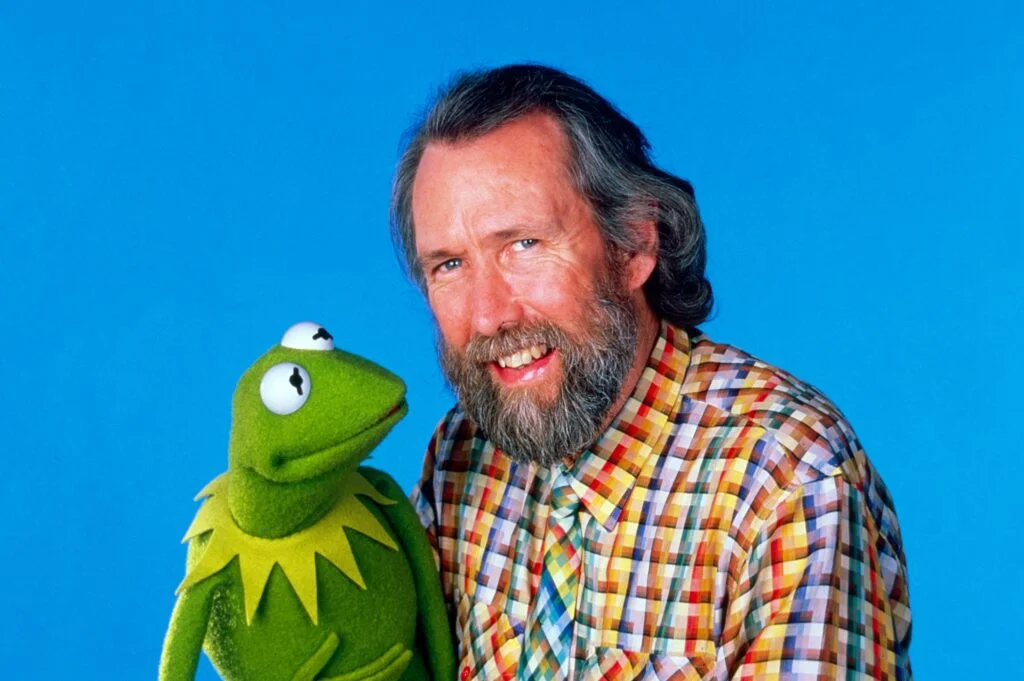
The creative genius behind the Muppets spoke almost as softly as his famous frog, his gentle voice a stark contrast to the kaleidoscopic world of characters he created. Jim Henson revolutionized puppetry by blending traditional techniques with technological innovation, creating characters so vividly alive that audiences forgot they were watching fabric and foam. His collaborative leadership style emphasized bringing out others’ creativity rather than demanding the spotlight, allowing talented performers and builders to develop their own visions within his expanding universe. Smithsonian Magazine goes further to trace just what it was that made Henson one of the most beloved cultural figures of the age.
While his creations entertained millions, Henson quietly infused his work with countercultural values of diversity, environmental awareness, and community that transformed children’s entertainment. His productions tackled complex concepts through humor and music, respecting young audiences’ intelligence while entertaining their parents—a dual-audience approach that permanently elevated children’s media standards. Though Henson avoided public political statements, his work embodied a gentle progressive vision where differences were celebrated, imagination was unlimited, and kindness was always the right answer—values that continued influencing entertainment long after his untimely death in 1990.
4. Julia Child
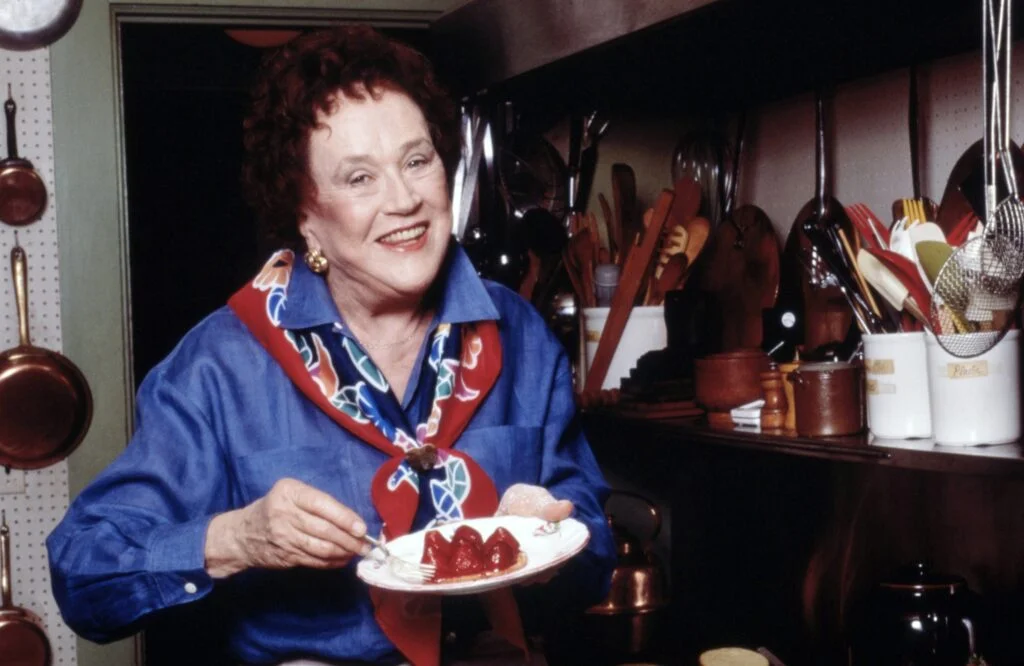
Standing at 6’2″ with an unforgettable warbling voice, Julia Child might seem an unlikely candidate for a “soft-spoken” influencer, yet her approach to culinary education was revolutionary precisely because of its understated accessibility. Unlike previous cooking authorities who emphasized perfection and technique, Child embraced mistakes on her show “The French Chef” (1963-1973), famously declaring, “If you’re alone in the kitchen, who is going to see?” Her unpretentious attitude and willingness to show her own learning process transformed American home cooking from a duty into an adventure accessible to anyone willing to try.
Working in a male-dominated culinary world, Child quietly subverted gender expectations not through manifestos but through joyful demonstration of what was possible. Her profound impact came not just from introducing French techniques to American kitchens but from modeling intellectual curiosity and fearless experimentation as appropriate pursuits for women whose ambitions had often been confined to domestic perfection. When food media later exploded into a major cultural force, virtually every celebrity chef owed something to Child’s pioneering work demystifying professional techniques for home cooks—a revolution accomplished without a single raised voice or demand for recognition.
5. Bill Blass

The quintessential American designer built a fashion empire without the theatrical dramatics often associated with the industry, preferring to let his clean, elegant designs speak for themselves. Bill Blass, who rose from humble beginnings in Fort Wayne, Indiana, transformed American ready-to-wear by bringing European sophistication to practical clothing that reflected women’s increasingly independent lifestyles. His quiet confidence and Midwestern sensibility made him the trusted designer for both Republican and Democratic First Ladies—from Nancy Reagan to Hillary Clinton—as well as corporate executives and society figures seeking stylish clothing that wouldn’t overwhelm their own personalities.
While flamboyant designers grabbed headlines, Blass quietly built one of the first true American lifestyle brands, expanding from women’s clothing into menswear, fragrances, home goods, and even chocolate before such diversification became standard practice. His business innovations, including becoming the first major designer to purchase his company back from corporate owners, created a template for creative independence that influenced generations of American designers. Blass’s greatest cultural contribution may have been elevating American fashion from European imitation to confident self-definition, accomplished through persistent refinement rather than revolutionary manifestos—an approach summarized in his understated advice: “Style is primarily a matter of instinct.”
6. Bernadette Peters
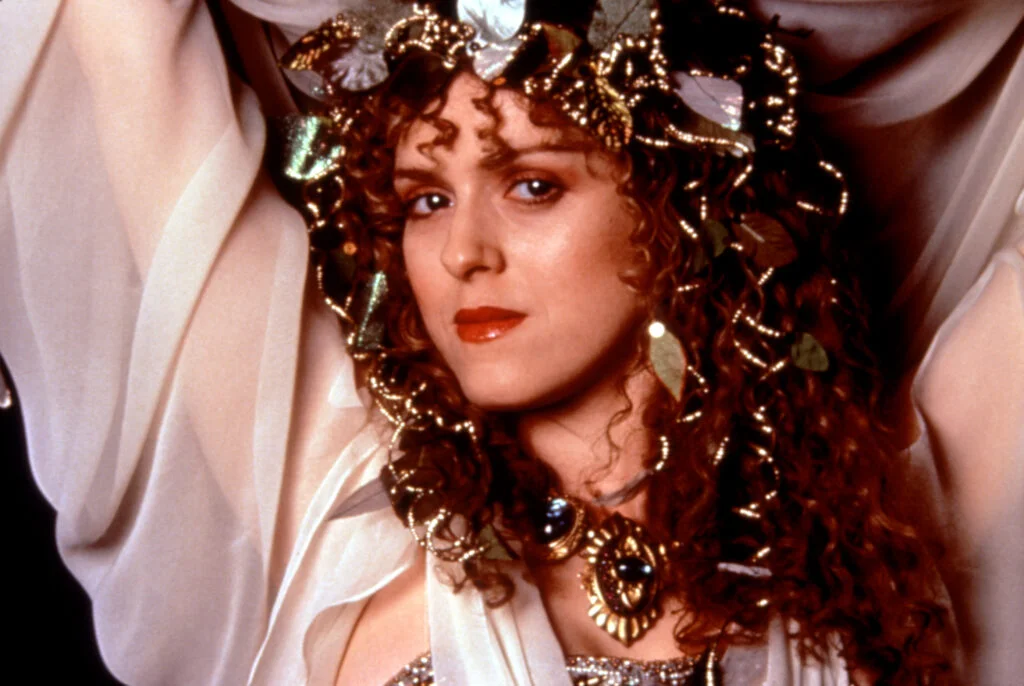
With her distinctive baby-doll voice and petite stature, Bernadette Peters created Broadway magic without the belting vocals or outsized personalities often associated with musical theater stardom. Her nuanced performances in Sondheim classics like “Sunday in the Park with George” and “Into the Woods” revealed how emotional authenticity could be more powerful than theatrical grandstanding. Peters pioneered an introspective performance style that transformed musical theater from mere entertainment into profound artistic expression, influencing generations of performers who learned that a whispered lyric could move audiences more deeply than a showstopping high note.
Beyond her performing career, Peters quietly revolutionized celebrity philanthropy through her focused dedication to Broadway Barks, the animal adoption organization she co-founded in 1998. Rather than spreading her influence across multiple causes for maximum publicity, she dedicated decades to this specific passion, demonstrating the impact of sustained commitment rather than momentary endorsement. Her Broadway legacy extends beyond her performances through her nurturing of young talent and preservation of musical theater history—contributions made through mentorship and advocacy rather than public pronouncements, changing theatrical culture through steady presence rather than dramatic gestures.
7. Akio Morita
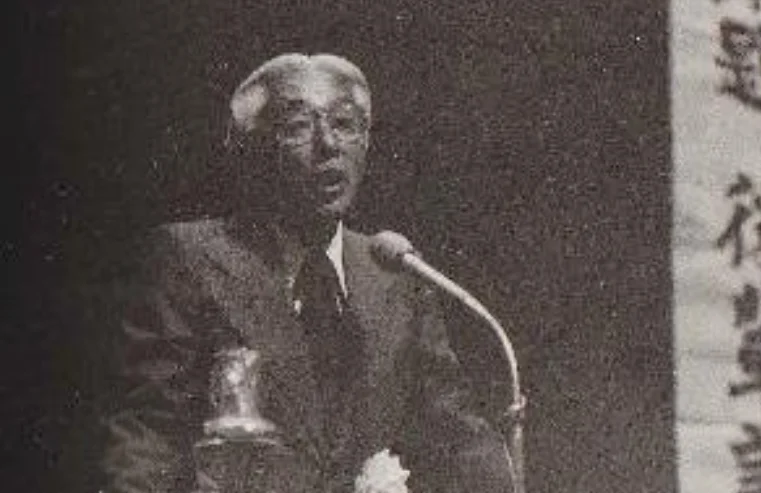
The co-founder of Sony Corporation rarely raised his voice but permanently changed how the world experiences music through the introduction of the Walkman in 1979. Akio Morita, a Japanese businessman who helped rebuild his country’s international reputation after World War II, insisted on developing portable technology against market research that suggested minimal demand. His quiet persistence in prioritizing innovation over immediate profit led to one of the most transformative consumer products of the 20th century, creating the concept of personal, mobile entertainment that eventually evolved into today’s smartphone culture.
While American executives of his era often cultivated larger-than-life public personas, Morita changed global business through thoughtful relationship-building and cultural bridge-building between Japan and Western markets. His philosophy that products should create new lifestyles rather than merely meeting existing needs revolutionized consumer electronics marketing and product development across industries. Morita’s 1986 book “Made in Japan” quietly challenged Western business assumptions without antagonism, suggesting collaborative approaches that influenced international business practices for decades—proving that transformative leadership doesn’t require the loudest voice in the room.
8. Toni Morrison
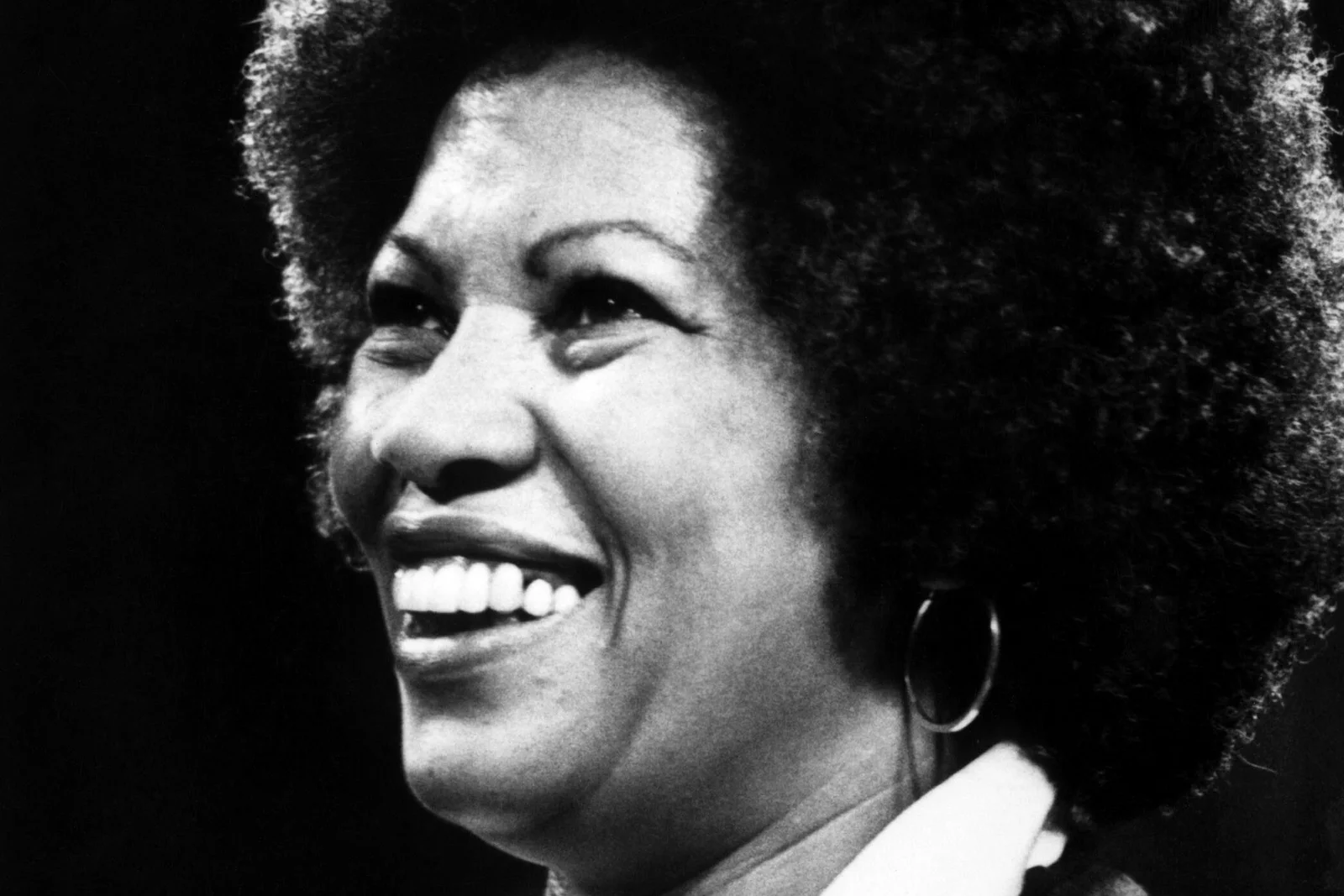
Before becoming the first African American woman to win the Nobel Prize in Literature, Toni Morrison spent nearly two decades as a behind-the-scenes editor at Random House, quietly transforming American publishing from within. While building her own writing career with “The Bluest Eye” (1970) and “Sula” (1973), she used her editorial position to champion Black voices including Angela Davis, Gayl Jones, and Muhammad Ali, permanently expanding whose stories were deemed worthy of publication. Her soft-spoken manner in interviews contrasted with the thunderous power of her prose, demonstrating that revolutionary art doesn’t require revolutionary personalities.
Morrison’s cultural impact extends beyond her own magnificent novels to include fundamentally changing how American literature is taught, critiqued, and canonized. Her literary criticism, including the groundbreaking “Playing in the Dark” (1992), quietly reshaped academic understanding of race in American literature by revealing the dependence of “whiteness” on constructed “blackness” throughout literary history. Though she avoided celebrity culture and rarely discussed her personal life in interviews, her dignified insistence that Black stories were central, not peripheral, to American experience permanently altered the literary landscape—a transformation accomplished through persistent brilliance rather than provocative public statements.
9. Norman Lear
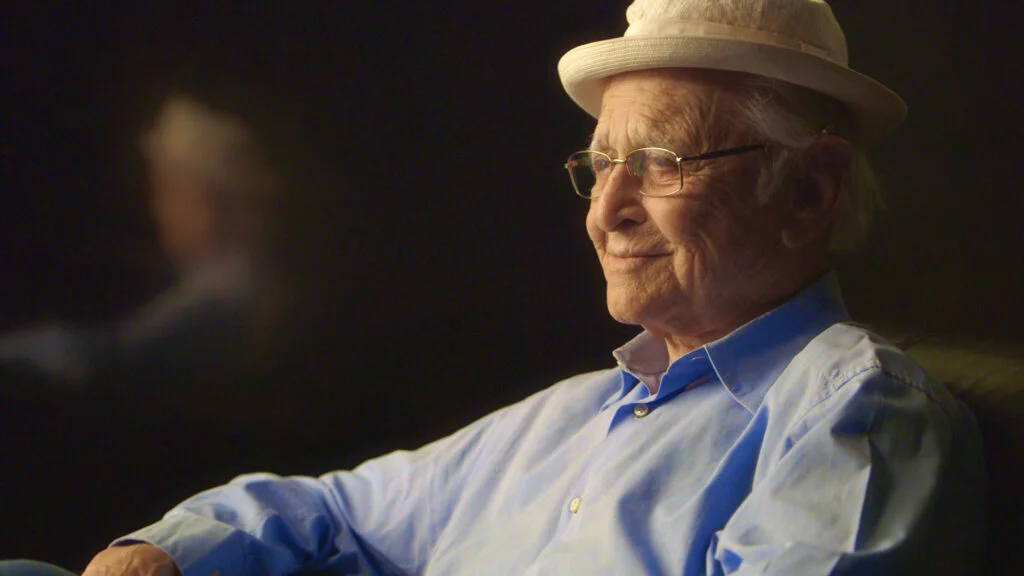
Despite creating some of television’s most controversial and groundbreaking sitcoms including “All in the Family,” “The Jeffersons,” and “Maude,” Norman Lear himself maintained a thoughtful, measured public presence that contrasted with his outspoken characters. His revolutionary approach brought contemporary social issues including racism, abortion, and economic inequality into America’s living rooms during the 1970s, forever changing television from mere entertainment to a forum for national conversation. Lear’s genius lay in making these discussions palatable through humor and relatable characters, allowing audiences who might avoid political discourse to engage with complex issues through the safe distance of fictional families.
While his shows sparked national debates, Lear worked quietly behind the scenes to advance progressive causes through organizations like People for the American Way, which he founded in 1981 to counter the rising influence of the religious right. His commitment to practical civic engagement continued well into his 90s, including launching “Born Again American” in 2009 to promote participatory citizenship across political divides. Lear demonstrated that cultural transformation doesn’t always require confrontational approaches—sometimes it happens by bringing people together in laughter before challenging their assumptions, a strategy that reshaped television content permanently.
10. Jane Goodall
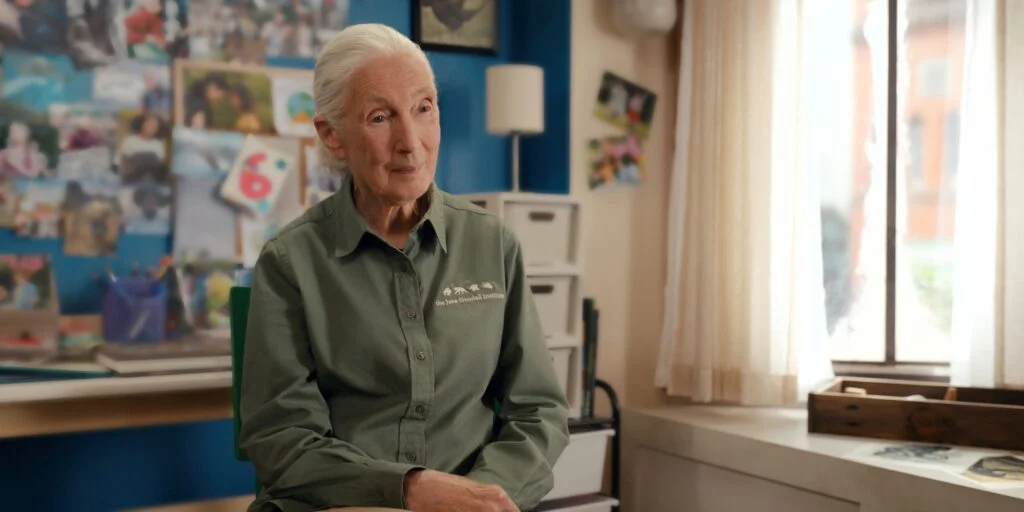
The soft-spoken primatologist who ventured into Tanzania’s Gombe Stream National Park in 1960 transformed our understanding of both chimpanzees and human nature through patient observation rather than dramatic proclamations. Jane Goodall’s groundbreaking discovery that chimpanzees make and use tools—previously considered an exclusively human ability—forced science to reconsider the dividing line between humans and other animals. Her gentle approach to both her research subjects and the scientific establishment allowed her to introduce revolutionary ideas without triggering the defensive rejections that often greet paradigm-shifting concepts.
While building her scientific reputation, Goodall quietly pioneered conservation approaches that integrated local community development with environmental protection, recognizing that sustainable change required addressing human needs alongside wildlife concerns. Her Institute’s programs expanded from chimpanzee research to holistic initiatives including girls’ education, sustainable agriculture, and public health—based on her understanding that effective conservation requires comprehensive community investment. Though she eventually became more vocal about environmental causes, Goodall’s most profound influence came through modeling an alternative to exploitation and domination in her research methods and conservation philosophy—a gentle revolution in how humans relate to other species and each other.
11. Jacques Pépin

Though never achieving the celebrity status of some television chefs, Jacques Pépin quietly revolutionized American cooking through his technical mastery, accessible teaching style, and unpretentious approach to fine cuisine. After declining an invitation to serve as White House chef for the Kennedy administration, Pépin chose the more modest path of educating home cooks through cookbooks, instructional videos, and public television shows that demystified French techniques. His groundbreaking 1976 book “La Technique” and subsequent television appearances emphasized foundational skills rather than specific recipes, empowering a generation of Americans to understand the “why” behind cooking methods rather than simply following instructions.
Unlike many culinary personalities who built brands on exclusivity and difficulty, Pépin celebrated practical adaptations and accessible ingredients appropriate for busy home cooks. His partnerships with Julia Child highlighted their shared philosophy that good cooking should bring joy rather than anxiety, countering the intimidation factor that had previously surrounded French cuisine in America. Perhaps his most profound cultural contribution was legitimizing the profession of cooking teacher at a time when chef-as-celebrity was just emerging, creating space for those whose talents lay in explanation and education rather than restaurant kitchen drama—a quiet revolution that democratized culinary knowledge beyond elite institutions.
12. Mary Oliver

The Pulitzer Prize-winning poet whose work celebrated nature and spiritual connection sold millions of books without book tours, major publicity campaigns, or social media presence. Mary Oliver’s accessible verse spoke directly to readers seeking meaning in natural observation and simple human experiences, creating a massive following through word-of-mouth rather than self-promotion. Her famous question—”Tell me, what is it you plan to do with your one wild and precious life?”—became a contemplative touchstone for countless people seeking purpose, proving that profound cultural influence can grow organically from authentic expression rather than marketing strategies.
While literary critics sometimes dismissed her accessible style, Oliver quietly built one of the largest poetry audiences in American history through work that bridged spiritual traditions, environmental consciousness, and personal reflection. Her readings consistently sold out despite minimal advertising, drawing multigenerational audiences who found in her gentle observations an antidote to modern disconnection and digital overload. Oliver demonstrated that cultural influence needn’t follow conventional paths to recognition—sometimes it grows through dog-eared pages passed between friends, poems read at weddings and funerals, and lines copied into journals by people who rarely read poetry but find themselves returned to wholeness through carefully chosen words.
These quiet revolutionaries remind us that cultural transformation often happens not through dramatic confrontation but through consistent presence, authentic contribution, and gentle persistence. While our attention naturally gravitates toward the loudest voices and most dramatic personalities, these background influencers demonstrate that volume and impact don’t necessarily correlate. Their legacies continue expanding decades after their contributions began, rippling outward through the millions of lives they touched indirectly. Perhaps there’s wisdom for our own lives in their examples—the possibility that meaningful change doesn’t always require megaphones and manifestos, just the courage to contribute our unique gifts consistently, thoughtfully, and with integrity.


